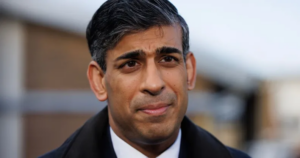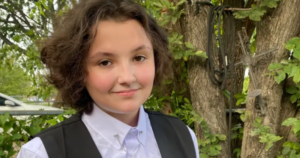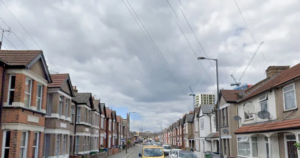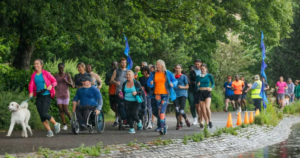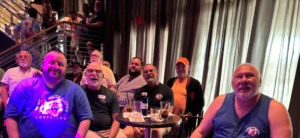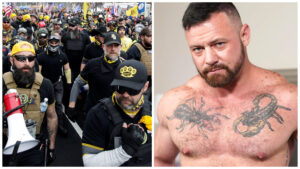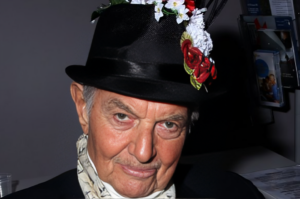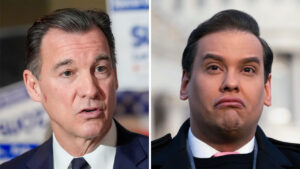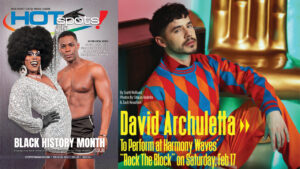It was the year 1969 and the Stonewall Inn was one of the most popular gay bars in New York City. Throughout the state, as you would rightly guess, homosexuality was considered a criminal offense, and it would take over a decade of organizing before “same-sex relationships” were legalized in 1980 (New York v. Onofre). The criminalization of homosexuality led many gay establishments to operate sans liquor licenses, providing an open door for raids and police brutality.
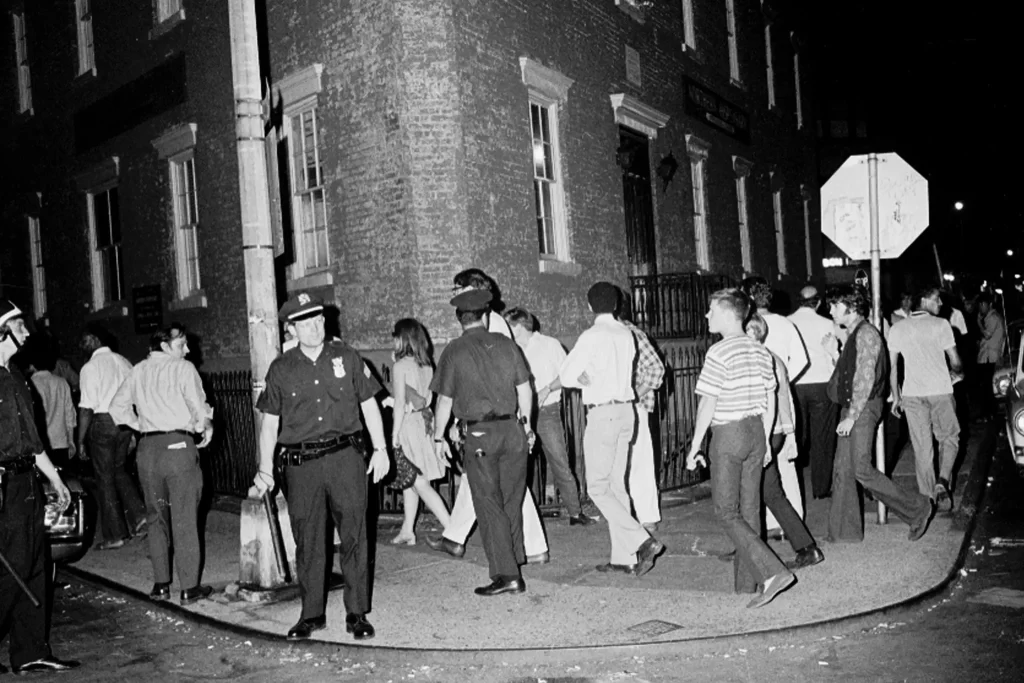
Like many gay establishments at the time, the Stonewall Inn was owned by the mafia, and as long as they continued to make a profit, they cared very little about what happened to their clientele. Because the owners were still making a profit, they simply adjusted to the raids and were often tipped off about them ahead of time. The Stonewall was raided on average once a month and it was also not the only bar in town that was being frequently raided.
How did the riots start?
Police raids and harassment were a common occurrence across the U.S. during this time, and amid the growing political activism of the 1960s, LGBTQ+ people began to mobilize and fight back.
At around 1:20 a.m. on June 28, 1969, police forces raided the Stonewall Inn.
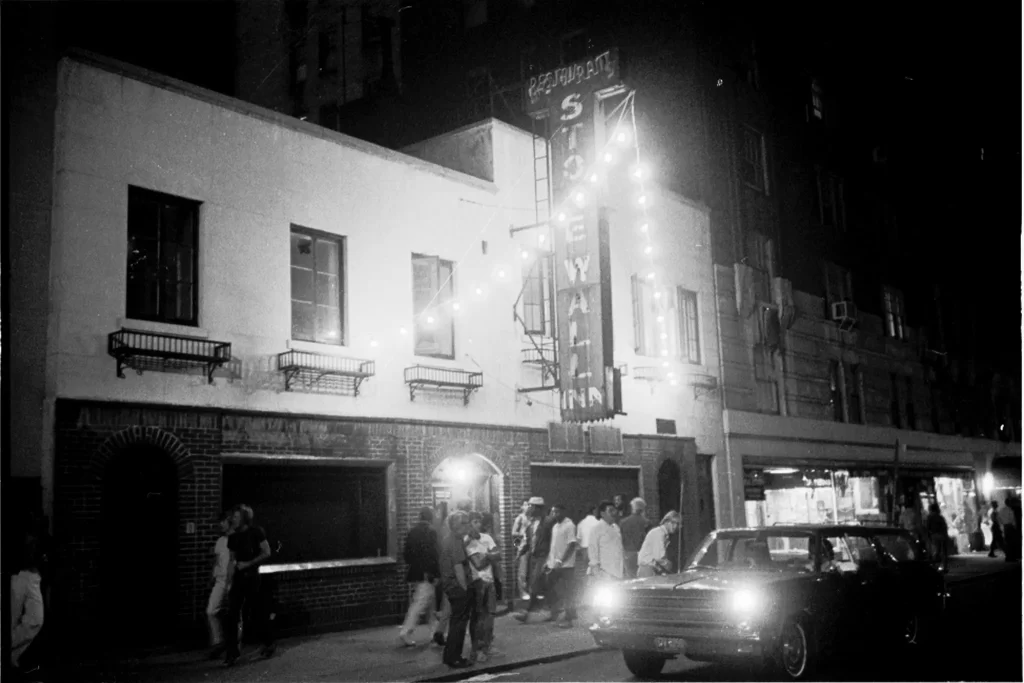
The Stonewall riots were spontaneous protests by members of the gay community in response to a police raid that began in the early morning hours of June 28, 1969, at the Stonewall Inn in the Greenwich Village neighborhood of Lower Manhattan in New York City.
Chicago Gunman killed 7 people during 4th of July Parade – Highland Park Mass Shooting
13 arrests were made on the first night, three on the second night, and five on the sixth night.
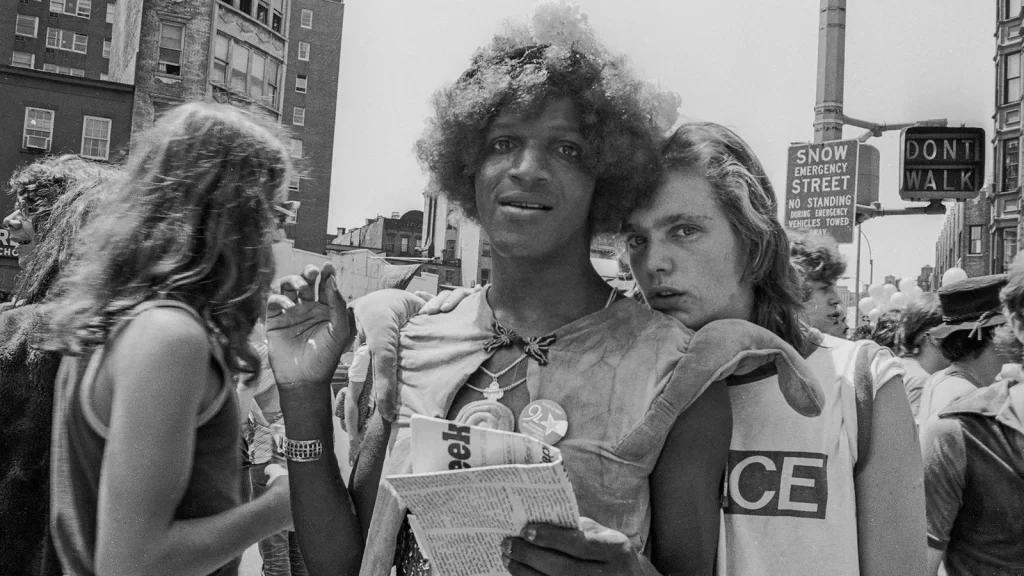
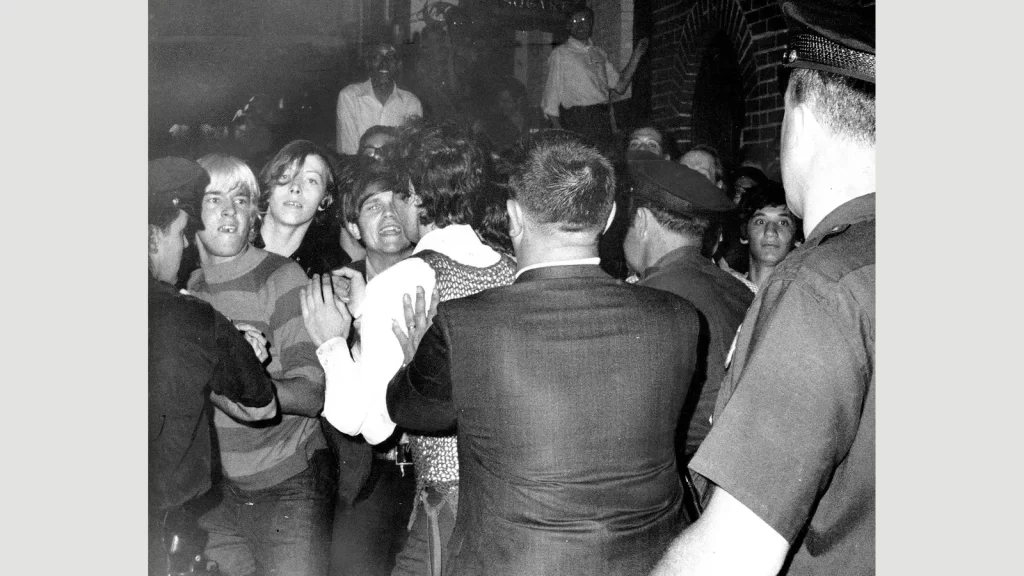
This uprising, which later became the prominent LGBTQ+ Rights Moment in the USA, caused nights of unrest with LGBTQ+ people, long frustrated by police brutality, finally fighting back. Lesbians and trans women of color were some of the key people involved in the act of resistance, including Stormé DeLarverie, Sylvia Rivera, and Marsha P. Johnson. This uprising was a symbol of the power of standing together.
The Stonewall Riots Begin And It Changed The World
The Stonewall Uprising
This uprising of The Stonewall started an important custom, and that is of Pride parade. The first Pride march in New York City was held on June 28, 1970, on the one-year anniversary of the Stonewall Uprising. You will find a video of this parade on the official website of the Library of Congress.
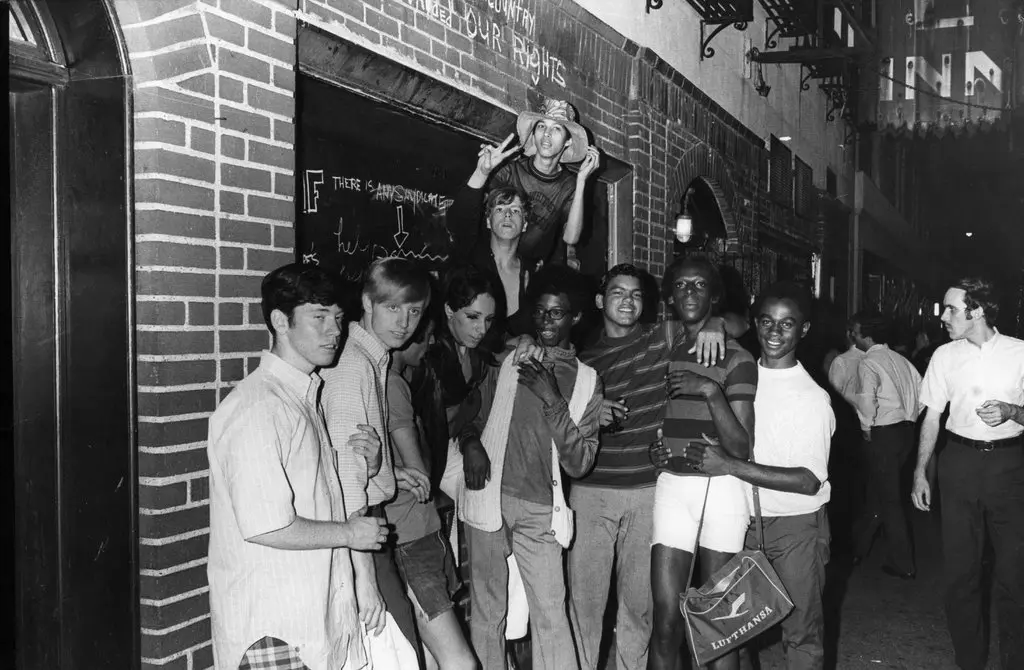
One thing to note here is, while the events of Stonewall are often referred to as “riots,” Stonewall veterans have explicitly stated that they prefer the term Stonewall uprising or rebellion. The reference to these events as riots was initially used by police to justify their use of force. Early publications show that the LGBTQIA+ community largely did not use the term riot until years after the fact.
STONEWALL Veterans’ Association says, “The rebellion (it was never a ‘riot’) lasted five consecutive nights (they were not ‘riots’).”
A couple of months after the Stonewall uprising, a spirit of rebellion reverberated from New York City and touched down in Atlanta.
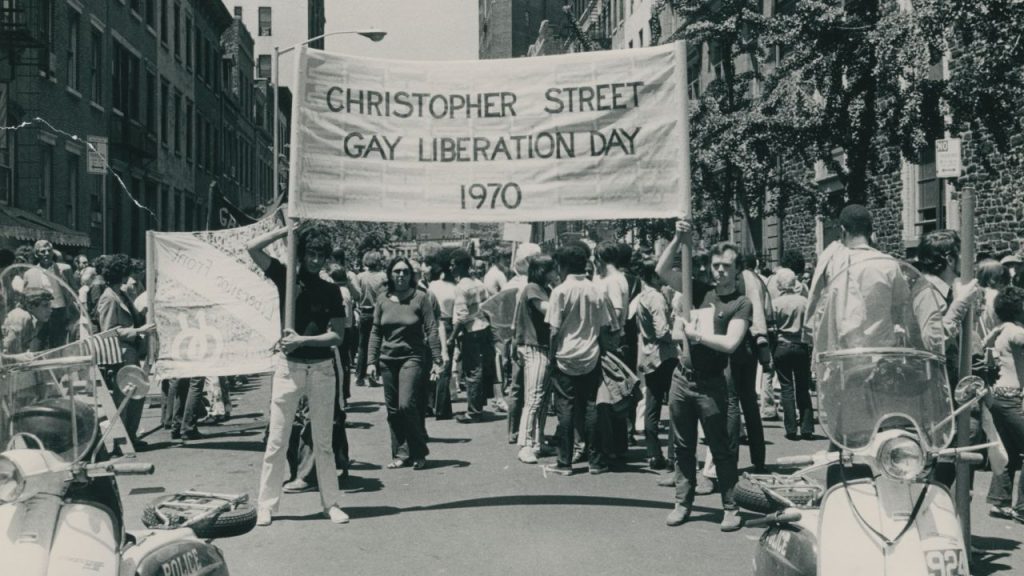
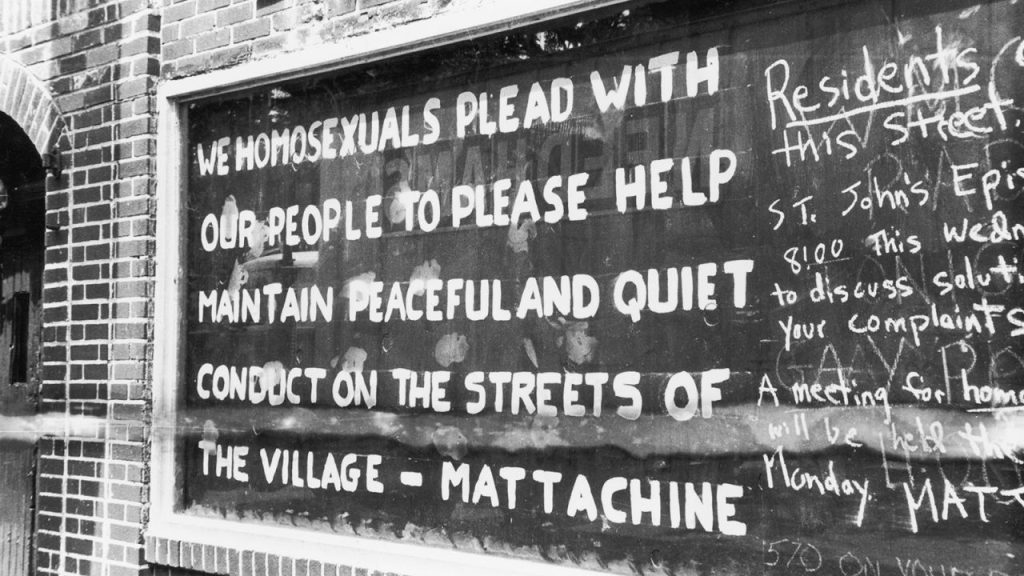
LGBTQ+ RIGHTS NEWS
- Michigan City Loses Lawsuit Over Anti Gay Free Speech Defense And Must Pay $825kA federal judge ordered the city of East Lansing to pay $825,000 for violating an apple farmer’s right to free […]
- Monarch high school faces more anti-trans backlashMonarch High School Faces Anti-Trans Backlash: Florida’s Monarch High School is on probation, fined $16,500 by the FHSAA for allowing […]
- Legalizing Gay Marriage Has Caused A Dramatic Drop In LGBTQ+ Suicide RatesIn June 2015 The Supreme Court of the United States declared same-sex marriage legal in all 50 states. The legalization […]
- Tucker Carlson’s Gay Executive Producer Accused Of Sexually Assaulting Another Man At Fox NewsFormer Fox News host Tucker Carlson’s longtime producer has been accused of sexually assaulting a gay man in 2008 while […]
It must have been a regular day for the people of Atlanta on August 5, 1969. But what was about to happen on this date was going to be a stepping stone to the existence and pride of the LGBTQ+ community not just in the USA, but across the world.
The Lonesome Cowboys Raid
On August 5, 1969, the Atlanta Police Department entered a screening of Lonesome Cowboys, a homoerotic underground comedy directed by Andy Warhol. The Atlanta Constitution described the film as “not the kind of movie where you send the kids on a Saturday afternoon.” Fifteen minutes into the film, the house lights in the theater came on, the film was stopped abruptly, and Atlanta police officers entered the theater. It was clearly a raid.
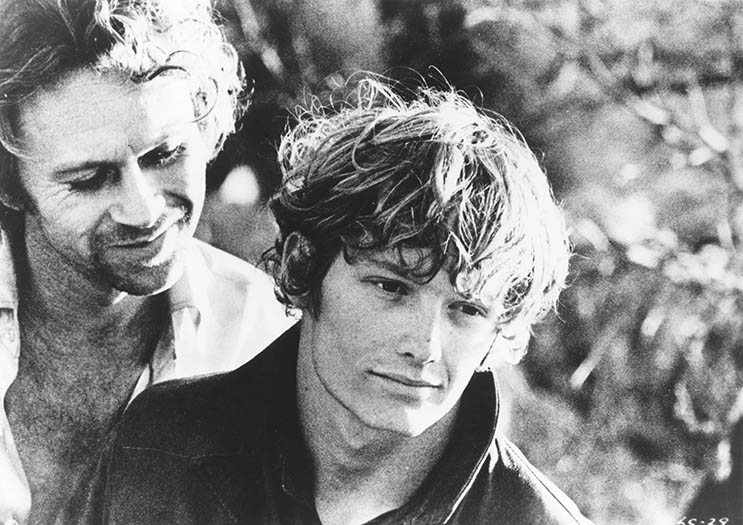
The police imposed obscenity laws on the theater in response to the movie’s contents. Many of the audience members were “known homosexuals” and they got harassed, photographed, and arrested during the raid.
Abby Drue, an LGBTQ+ activist who was present at the cinema during the raid, said, “We had popcorn in our mouths. I think I had a submarine sandwich I was in the middle of eating. That’s how absurd it was.”
It was not the first time that Georgia authorities harassed the gay community. The harassment and unfair treatment have been synonymous with gay existence forever.
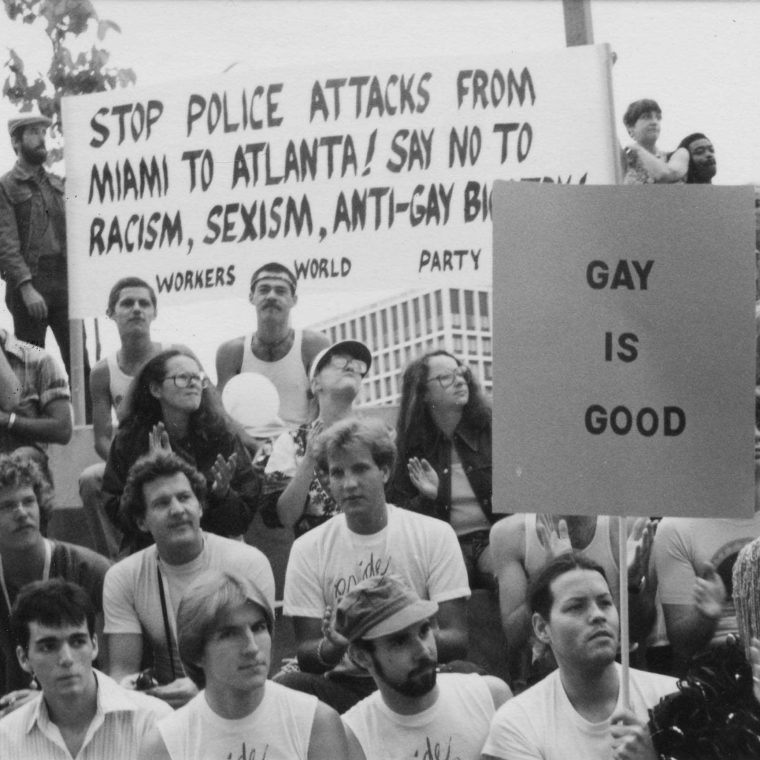
Atlanta Pride Parade Was Wild Diversity Of ‘New South’ LGBTQ Support
Atlanta Pride Makes Safe Return And It’s Not Too Late To Attend
However, for police to raid a movie theater was regarded as a strong image of violation.
The Lonesome Cowboys Raid at Ansley Mall represented the reason many in the LGBTQ+ community stayed hidden. Fearing discrimination and violence due to constant police harassment and the negative social stigma surrounding LGBTQ+ identity, they lived quiet lives. The community tried its best to be incognito as they made their way to gay-friendly bars and restaurants.
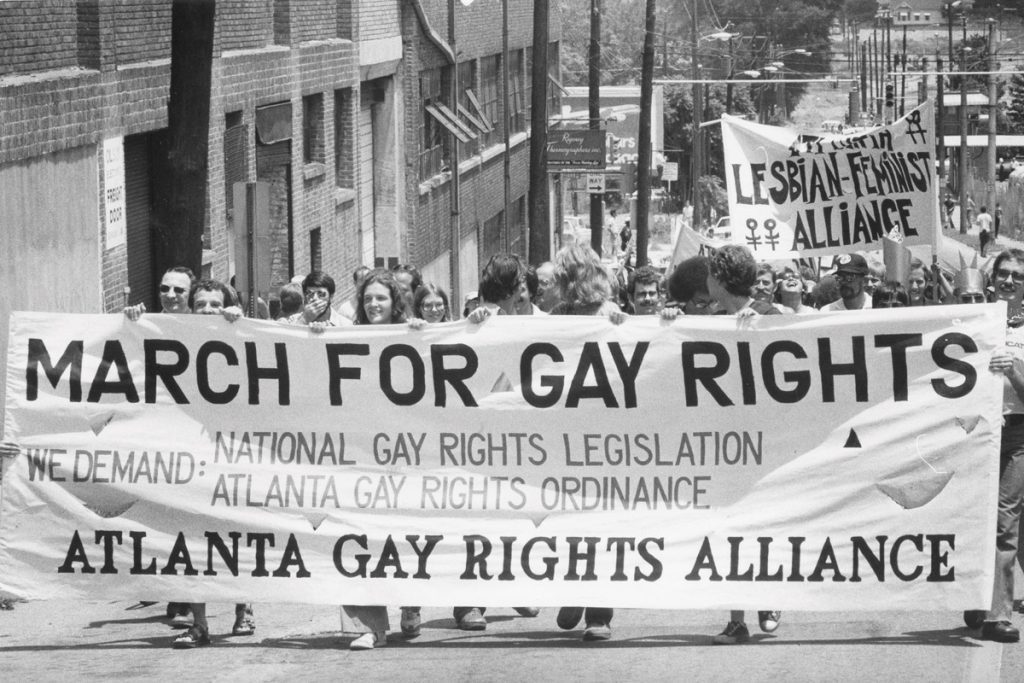
A few days after the raid, protesters at the local alternative newspaper, Great Speckled Bird, were confronted by police, sprayed with mace, and many arrested. That protest foreshadowed what was to come. The Lonesome Cowboys raid motivated Atlanta’s Gay Liberation movement, leading many in the LGBTQ+ community to become more daring in their activism.
This raid led activist members of Atlanta’s LGBTQ+ community to meet at the New Morning Café in Emory Village and formed the Georgia Gay Liberation Front. The group quickly got to work, registering LGBTQ+ people to vote, protesting anti-gay laws, and organizing the first Atlanta Pride event in 1971.
Although the City of Atlanta refused to grant GLF a permit for the Atlanta Pride event, 125 people still walked up the sidewalk along Peachtree Street—many wearing paper bags over their heads to avoid being identified—commencing a tradition fundamental to the fight for LGBTQ+ rights in Atlanta.
After the raid, Atlanta became the home of many gay nightclubs and bars, such as Backstreet, one of the most prominent Atlanta gay nightclubs. Backstreet was a euphoric scene: Plush carpets, sparkly mirrored disco ball (which is now part of the permanent collection at Atlanta History Center), three levels of bars, mirrors, and lights.
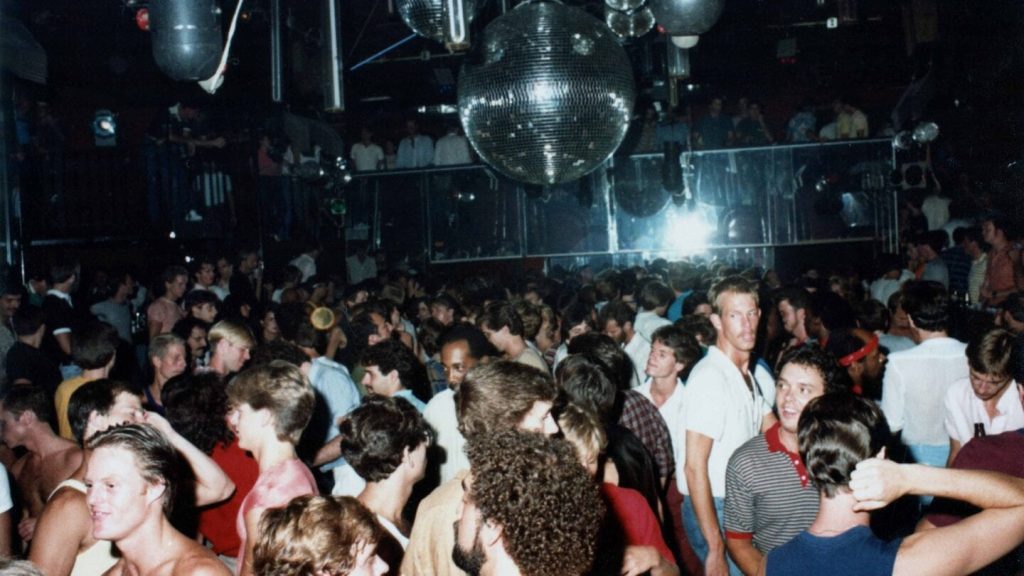
Celebrities, such as Madonna and Elton John, visited the club in disguise to experience sparkly gay parties. Over the years, Backstreet became a gathering place for diverse members of the LGBTQ+ community.
It is important to note that there were a number of uprisings against police & state brutality, harassment, and entrapment of the LGBTQ+ communities in the U.S. in the years before Stonewall. These events and the people involved have not received as much historical attention as Stonewall, but are just as central to understandings of U.S. LGBTQIA+ histories. Some of the pre-Stonewall uprisings included:
Black Cat Raid, Los Angeles, California, 1967
Black Night Brawl, Milwaukee, Wisconsin, August 5, 1961. 400 Plankinton Ave.
Compton’s Cafeteria Raid, San Francisco, California, 1966
Coopers Do-Nut Raid, Los Angeles, California, 1959
Pepper Hill Club Raid, Baltimore, Maryland in 1955. Over 162 people were arrested.
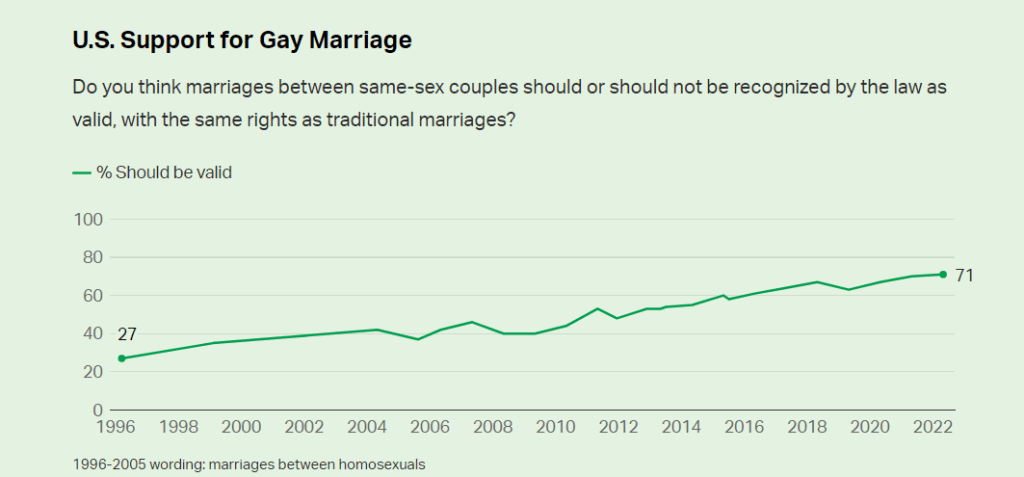
We must make ourselves visible, even when we lose, whatever it is that we lose
– Arundhati Roy
Delhi Queer Pride Parade Gives Hope To Estimated 100 Million lgbtq+ Indians
The LGBTQ+ Community has always fought back against oppression, the fact we must know when the air in the country is filled with more anti-LGBTQ+ rhetoric than ever before. We are the community that stands together, laughs together, fights together, and grows together.
Here is to us, to our past, to our present, and to the future which is surely more glorious than ever before.
Author












